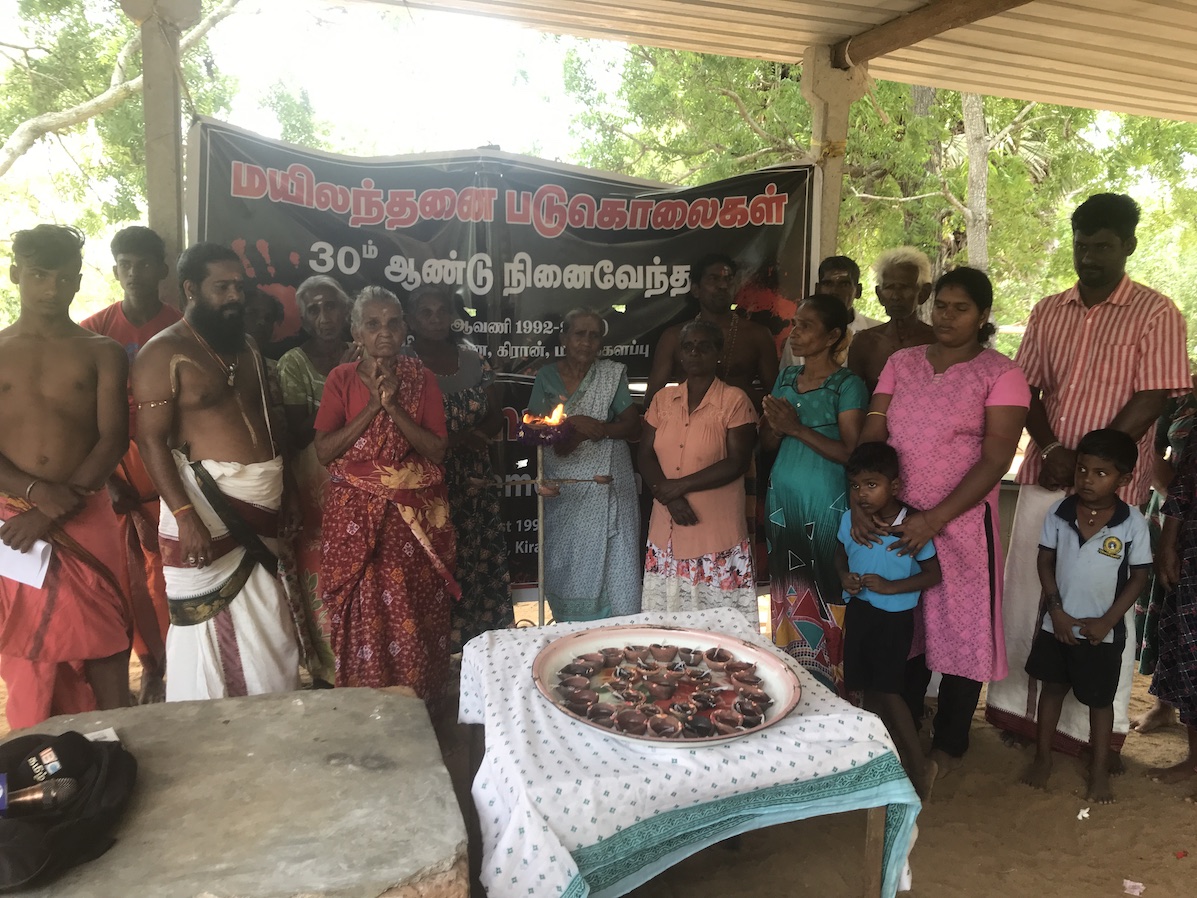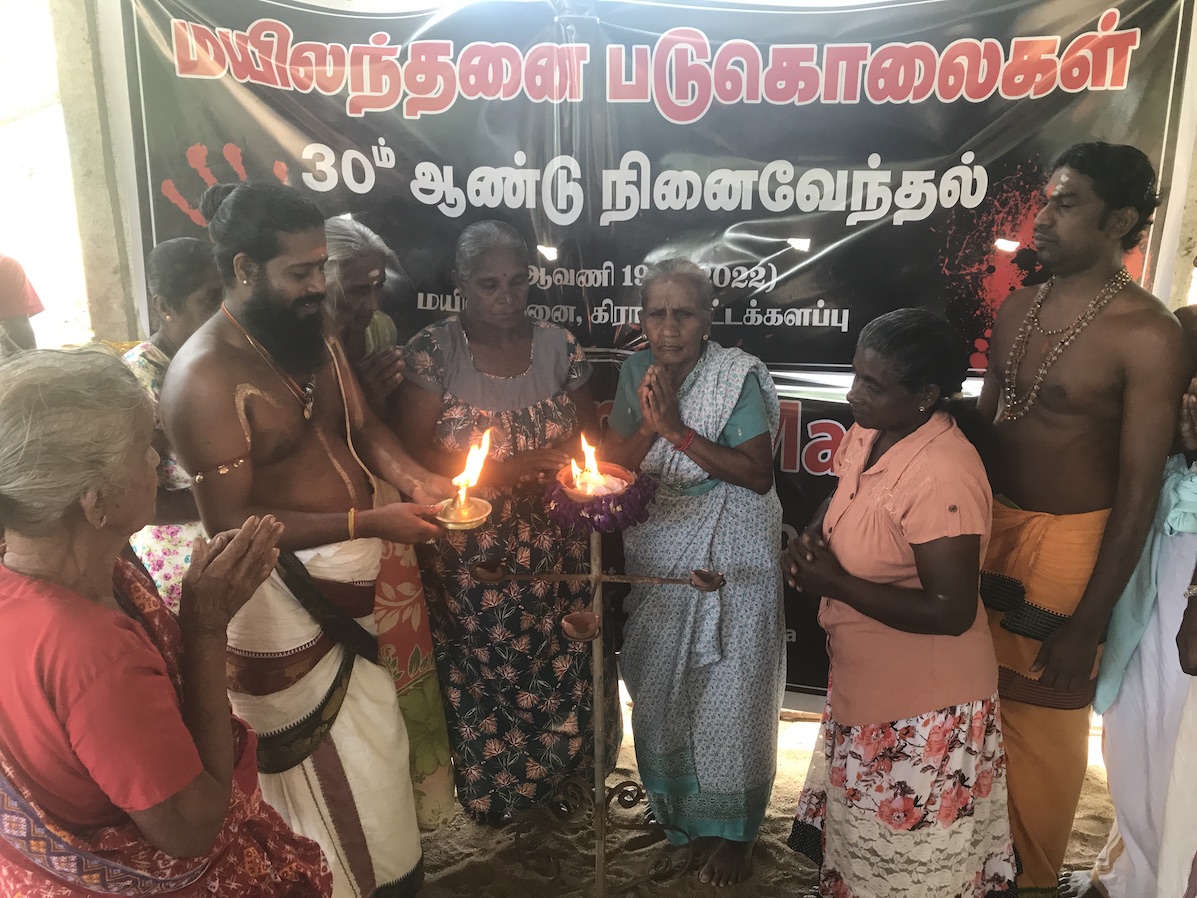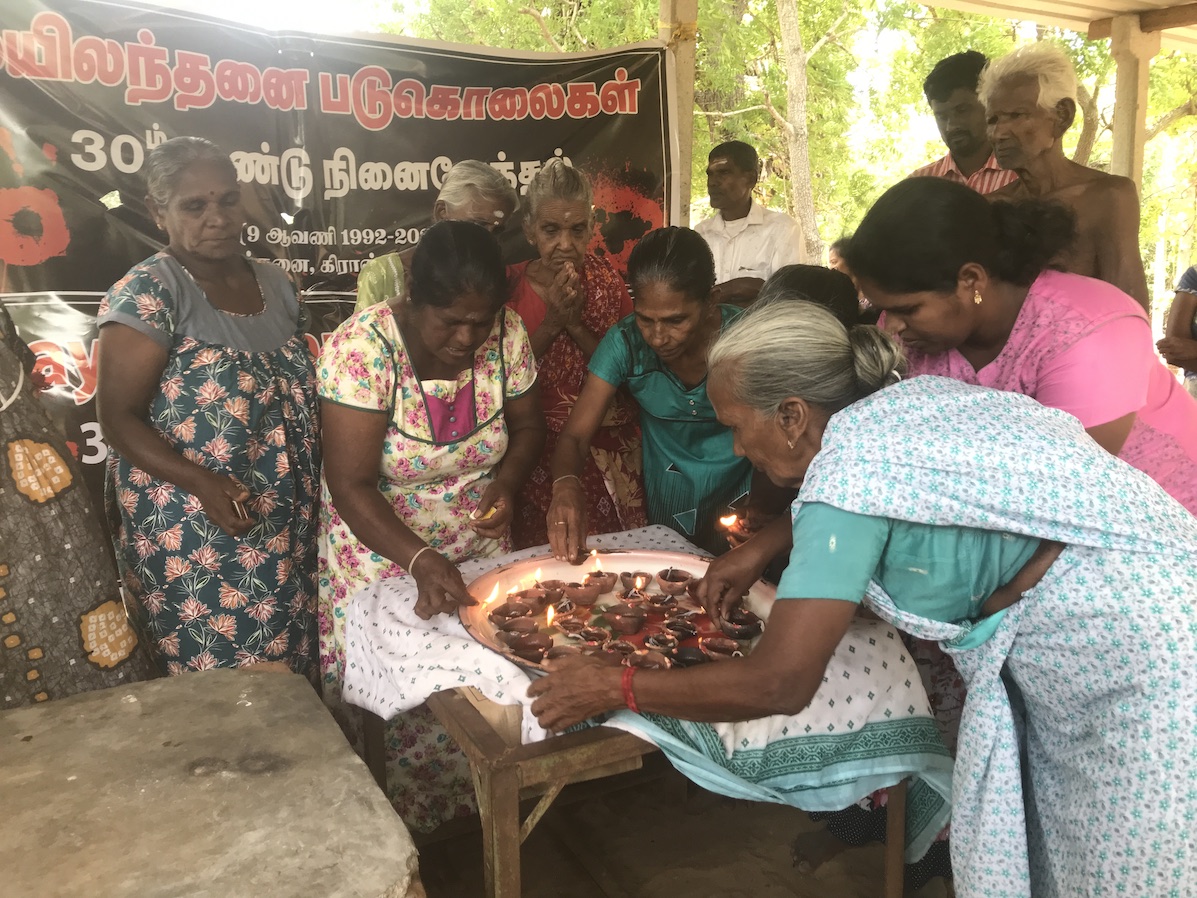A commemorative event was held earlier this month to mark the 30th anniversary of the Mylanthanai massacre where Sri Lankan soldiers attacked and killed 39 Tamils.
A pooja was performed at the Mylanthanai Vinayagar temple and a minute silence was observed by locals, village development association members and social activists to remember those who were killed in the attack.
On August 9,1992, Sri Lankan troops from the Punanai army camp stormed the village of Mylanthanai, a village 50km north of Batticaloa, and ordered villagers to leave their homes before attacking them with knives and clubs.
According to TamilNet's reports, the massacre took place in retaliation to the killing of Major General Kobbekaduwa and seven other senior army officers who had died a day earlier in a landmine attack.
Survivors of the massacre identified 24 Sri Lankan soldiers from the Punanai army camp as the perpetrators of the massacre who were then arrested by Valaichenai police.
The case was originally taken up on June 6, 1993 at Batticaloa Magistrate Court but was then transferred to Polonnaruwa Magistrates Court following instructions from the Attorney General.
On March 8, 1994, the hearings concluded and resulted in the acquittal of 3 of the 24 soldiers while the other 21 soldiers were charged with first degree murder. In October 2002, the case was finally heard at Colombo's High Court after the accused soldiers requested that the case be transferred from Polonoruwa to the capital. Only 19 of the 21 accused soldiers were present as one was reportedly dead while the other was missing.
Following an application made by the defense, the Colombo High Court ordered that the Mylanthanai massacre case should be heard before Sinhala speaking jury.
30 Tamil witnesses travelled from Batticaloa to Colombo to give evidence to the court. One witness, Ms Sinnathurai Indrakala, told the court:
"About 50 Sri Lanka government troops entered our village with arms and started harassing the villagers. On seeing them I started running from my house towards jungle area. I fell on the ground. Some army personnel came to the spot and stabbed my hands with rifle bayonet. When I regained consciousness I saw 10 bodies of our villagers with gunshot and cut injuries."
Dr K Niranjan, an Assistant Judicial Medical Officer also gave evidence and told the court:
"One year old Latha, a girl who was rushed to the Colombo general hospital in critical condition the day after the Mylanthanai massacre succumbed to cut and chop wounds caused by pointed weapons such as axe and knives on admission."
Despite the survivors identifying the soldiers and the first hand witness statements, the all Sinhala jury acquitted all of the accused soldiers. After the jury delivered their verdict, the High Court judge Mr Sriskandarajah asked the jury to retire once again and reconsider their verdict. However, the jury delivered the same verdict, claiming that the soldiers were not guilty.
30 years have passed since the massacre but the perpetrators have not been held accountable.



